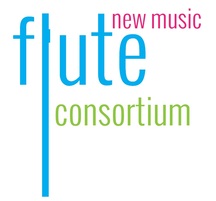Get to Know...Gabrielle Cadenhead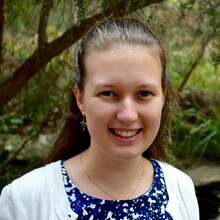 We love the surprise of learning about the composers at the end of the blind evaluation and voting process; we have the opportunity to encounter composers of all ages, male and female, from all around the world. Some are flutist/composers, while others appreciate the instrument, a few wrote the piece on commission, and (just once) a composer who wrote for a piece for solo flute, an instrument he was not particularly fond of so as to learn more about it, and produced one of the most popular works we’ve encountered in the composition contest! Gabrielle Cadenhead, honorable mention in the solo flute category in 2018 for Echo, is one of several flutist-composers who have found success in the competition. Their understanding the instrument often contributes to their skill in writing pieces that are really musically effective. Gabrielle is among our youngest honored composers, she was just 20 when her piece was selected, and the second Australian (randomly, the winner of the solo flute category last year was Australian.) We really love Echo, it is a refreshing departure from the aesthetic of many solo flute works. Although we certainly love virtuosic displays and challenging extended techniques, Echo is virtuosic in a different way, this contemplative solo requires great control and musicality as the musical line is often quite static. The extended techniques (mostly singing and playing and harmonics) feel very organic. After learning about Gabrielle’s influences we see Echo as a representation of her compositional style; she composed a poem for the work, which is inspired by her experiences in church and her faith, and is intended to be performed in a space like a church where the reverberations will fill the space with sound. Q&A with Gabrielle… What about new music for the flute appeals to you? As both composer and performer, the flute presents a coalescence of my skills, which makes composing and performing new music for the flute a great joy as I am simultaneously in the mind of both roles Who is/are your favorite “new music” composer/s and why?Who is/are your favorite “new music” composer/s and why? Difficult choice, but Amanda Cole's chamber works always possess a real conceptual integrity and wonderful sound world. Jennifer Jolley's works generally impress me with their boldness and unapologetic confrontation of contemporary politics. And Emily Doolittle's animal transcription music is a fascinating study in the relationship between humanity and the environment. Do you have any upcoming events that you would like our friends and followers to know about? I am currently working on a solo flute EP where I am both composer and performer, to be released later this year, on which 'Echo' will feature alongside four other works by me. Blending words, notation and improvisation. Stay up to date by following me on Bandcamp, Instagram, and Facebook. What advice can you give to flutists about approaching new music in practice? The flute is incredibly versatile and can do much more than what is contained in conventional classical repertoire. Open your mind to composers' ideas and experiment with your own - workshopping new pieces with composers is a fantastic creative opportunity for both parties. More About Gabrielle... Gabrielle Cadenhead (b. 1998) is an emerging writer, composer and flautist who blurs the line between music and poetry. She is currently studying English and Composition at the University of Sydney and Sydney Conservatorium of Music. Gabrielle's music is inspired by literature, social justice, faith and the natural world, and has been performed by youth orchestras and professional musicians alike. She is most interested in the intersection between her artforms - the rhythms of poetry, and the ability of music to tell compelling stories. She performs regularly as Principal Flute of Sydney Youth Orchestras' Symphonic Wind Orchestra, and has performed solo as part of Extended Play New Music Festival at Sydney's City Recital Hall. She is a founding member of Konzertprojekt, a collective of composers and performers passionate about presenting new and old music in fresh contexts, and her writing often bleeds into her musical practices. Learn more: https://gabriellecadenhead.wixsite.com If You Liked Echo… Articulate Instrumentation: solo flute Date of Composition: 2017 Duration: 7:30 Echo Instrumentation: poetry and solo flute Date of Composition: 2018 Duration: 8:00 Score available for download Luminosa Instrumentation: flute, piano, vibraphone and string quintet Date of Composition: 2018 Duration: 6:32 Morning Song Instrumentation: soprano, flute, viola and piano Date of Composition: 2017 Duration: 7:32 Something Elvish Instrumentation: flute, violin and cello Date of Composition: 2016 Duration: 5:11 If you would like to access the scores/parts for any of these works, please email [email protected]
1 Comment
Get to Know...Jee Seo Korean Composer Jee Seo was a finalist in this year’s solo flute category for On Fever. Jee is originally from Seoul, South Korea but currently resides in New York City. Jee shared with us a fascinating mixed media collaboration from the 2017 DangDangDang Festival which featured a live performance of On Fever (flutist Moe Yamashita) combined with media and mime. The performance occurred in an abandoned coal mine! It’s a really fascinating concept and Moe Yamashita’s performance in incredible! A mythical narrative collaboration, On Fever is about the extreme contrast of hot (fever, passion, fire) and cold (flute instrument, cave), which represents Jee or his music. Flute is an oldest instrument vs. cave is an archetype space. He is always seeking to write music with a new interpretation of the origin. Q&A with Jee… Who is your favorite "new music" composer and why? György Kurtág (1926- ). I believe that he is most sincere composer in this era. Describe your musical background and current activities. Fortunately, I was able to have various musical experiences from an early age under the influence of my parents. I am currently based in NYC and concentrating on my composition now and also working in collaboration with artists. Do you have any upcoming events that you would like our friends and followers to know about? My violin duo piece (Four Pieces for Two Violins) is scheduled to be performed in Boston and Siena, Italy at the beginning of next year. More About Jee… Jee SEO (b.1985) is a Korean composer currently based in New York City. Jee began his international career and was awarded prizes at the Val Tidone International Music Competition “Egidio Carella” Composition Competition in Casa Berni (Italy), the International Antonin Dvorak Composition Competition in Prague (Czech Rep.) and the International Composers’ Forum and Competition BRUNO MADERNA in Lviv (Ukraine). His works have been selected and performed at festivals including C.A.T. Ensemble Call for Scores in Siena (Italy), Call for Scores Risuonanze2017 in Friuli Venezia Giulia (Italy), The Boston New Music Initiative Call for Scores in Boston (USA), KALEIDOSCOPE Chamber Orchestra Call for Scores in Los Angeles (USA), Call for Collaborative Project Ensemble Móbile in Curitiba (Brazil), The International Symposium of New Music in Curitiba (Brazil), International Delian Academy for New Music in Mykonos (Greece), Aldebaran Music Festival in Brescia (Italy), and Hawaii Public Radio Art Song Contest (USA). His works are published by Aldebaran Editions (Italy), Ablaze Records (USA). Jee is currently working toward a in Master of Music degree at Manhattan School of Music in NYC. Get to Know...Mark Wolf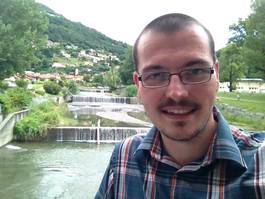 You may have figured out by now that we’re kind of nerdy. We love to track statistics about the composition contest. We’ve been so excited to see entries from all over the world! We get really excited to see entries from new countries. The winner of the solo flute category this year, Mark Wolf (for Hamarøy Troll), is from Australia! Now, we’ve had winners and/or finalists from five of the six inhabited continents (we haven’t had a finalist or winner from Africa...although we’ve had one entry) We’re looking forward to featuring Mark in a winner’s video interview which, thanks to technology, we’ll be able to complete via skype. But, we’re happy to share this composer spotlight in the meantime so you can learn more about him and his music! Q&A with Mark… What is/are your favorite “new music” piece/s and why? It is difficult to choose a single favourite piece so here are 3 out a possible 10. Arcana (1927) by Edgar VarèseArcana is highly attractive to the ear. Scored for a very large orchestra (quintuple winds), I have an appreciation for its highly selective instrumental textures, timbre, and sonorities. The polyphonic contrast ranges from full flamboyant orchestral tutti to Mahler-like moments where the piece could pass for chamber music. The Triumph of Time (1971-72) by Harrison Birstwistle, much of Bistwistle’s music has a paradoxical timeless quality. The Triumph of Time again scored for large orchestra runs for almost a half an hour and seems to have no real beginning or ending. It is as if only a portion of the whole work is witnessed. Quatre Chants pour Franchir le Seuil (1996-98) by Gérard Grisey. While studying for my Masters of Music at the Royal College of Music, London. I was introduced to the work of the French spectral composer Gérard Grisey. I was instantly hooked. This time, scored for soprano soloist and large ensemble, the title translates to Four Songs for Crossing the Threshold. A song cycle which explores the threshold between life and dealth, the mostly fragile haunting music, like meditation, releases the sole and powerfully persuades an acceptance for death. There are only a small handful of works which have had a profound impression on me as much as Grisey’s Quatre Chants, especially because of Grisey’s coincidental sudden death after completing the piece. Describe your musical background and current activities. It all started for me at age 12 when I first took up piano lessons. The following year I picked up a trumpet. Learning the classical and romantic repertoire on piano and playing trumpet in youth orchestras sparked the insatiable desire to compose my own original music. For as long as I can remember I have been particularly fascinated with how, either natural or man-made objects, are created, engineered or produced. How it is they have come into being? What are the building blocks? This brings us to the subject of my current PhD research which is focused on the parallels found between architectural ‘space’ and musical ‘time.’ Over the past three and a half years, I have composed several works which are, in a sense, translations of architectural ‘space’ into temporal musical experiences. The buildings I have chosen to translate are not just any old buildings but were carefully selected for their unconventional spatial design qualities. Architectural spatial design which questions engineering principals and on the surface, seems to defy logic. It is the extremities of architectural design which excites and fuels my need to write music. An enthusiasm equaled to when I first started composing. Do you have any upcoming events that you would like our friends and followers to know about? Recently, I was announced winner of the Etymos Ensemble 2017 Call for Scores Competition for my solo vibraphone piece Umbra-Penumbra-Antumbra. As a result, the winning work will be published by Edizioni Sconfinarte and was performed this fall at the following festivals:
My latest work, Spiral Spring for large ensemble, was performed by the players of the Queensland Symphony Orchestra conducted by Peter Luff at the Composers in Concert Event at the Queensland Conservatorium, November 19. Mark was recently accepted to the 2018 Mixtur Festival: Composition and Sound Experimentation Workshop, taking place in Barcelona, Spain in April 2018. More About Mark…. Mark Wolf is an alumnus of the Elder Conservatorium of Music, Adelaide, Victorian College of the Arts, Melbourne and the Royal College of Music, London. He also attended the ICon Arts Academy in Romania as well as the Soundstreams Emerging Composer Workshop in Toronto, and the Soundstream Emerging Composers Forum in Adelaide. Wolf's concert music has received recognition through commissions by Núcleo Música Nova, the British Harpsichord Society, clarinettist Ona Cardona, the Taylor Wessing Photographic Portrait Prize, and the Melbourne Symphony Orchestra; premièred at venues including Teatro da Reitoria Brazil, Handel House London, St Martin-in-the-Fields, the National Portrait Gallery UK and the Melbourne Recital Centre. Wolf’s work has been featured at various international festivals including: IV Bienal Música Hoje, soundSCAPE Festival, ICon Arts Festival, and the 5th and 6th Darwin International Guitar Festivals; performed by ensembles such as Ensemble Móbile, Resound Duo, RTÉ Contempo Quartet, and the Sydney Guitar Trio. In 2017, Wolf was announced the winner of both the Etymos Ensemble Call for Scores and the Flute New Music Consortium Composition Competition. He was also the winner of the 2015 ICon Arts International Composition Competition. Wolf is currently the recipient of an Australian Research Training Scholarship, undertaking his PhD candidature at Queensland Conservatorium, Griffith University. If you Like Hamaroy Troll… Hamarøy Troll 7’ flute recording 2010 Rubin’s Vase 2’ flute, saxophone, guitar, percussion, violin, cello recording 2017 Miniature Structure No. 3 3’ flute, bass trombone, vibraphone 2015 Less is a Bore 12’ flute, clarinet, violin, cello, piano work in progress Elegy 3’ flute/bass flute, oboe, clarinet/bass clarinet, bassoon recording 2007 City of Melbourne 13’ flute/piccolo, Clarinet in A/Bb, viola, french horn recording 2006 Twelve on Two 12’ piccolo/flute, 2 clarinets, tenor saxophone, recording 2002 trombone, 3 violins, viola, 2 cellos Stubborn Disposition 4’ flute, violin, piano recording 2002 Zenith 6’ flute, 2 guitars, violin, viola, cello recording 2002 Get to Know...Till MacIvor Meyn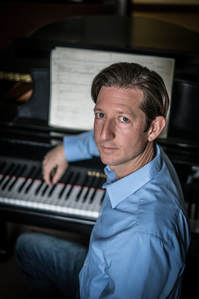 The flute and accompaniment category has traditionally been a category in which there are tons of really strong pieces and 2017 was no exception. We often find ourselves interested in performing all of the finalists works! Forces of Nature for flute and piano was a finalist work in this year’s flute and accompaniment category. Today, we’re featuring the composer, Till MacIvor Meyn! We were pleased to see that Till has more flute pieces available for us to play! Members with flute ensembles will be pleased to see he has three works for flute ensemble (a quartet and two flute choir pieces). There are recordings of Urban Ragas and Preludio Y Tango easily accessible on YouTube. His newest work, Nordic Spirits, which was premiered at NFA this summer is not recorded at this time, but we’re sure it will be recorded and posted soon! He also has a beautiful and accessible solo flute work Big Kahuna, there is a recording available on SoundCloud. We encourage you to check them out! Q&A with Till… What about new music for the flute appeals to you? New music for flute, as with new music in other genres, is really taking off today. By that, I mean that there are so many composers and new pieces out there now than there were a generation ago. Finding new music can be a very rewarding experience: You'll come across compositions that can touch you in a personal way, either through their lyrical qualities, their virtuosic elements, or combinations of those and other aspects. Happy hunting! Who is/are your favorite “new music” composer/s and why? I have many favorite living composers, and a varied musical palette of tastes. I find the music of Eric Ewazen to exhibit well-constructed melodies contained within classical-style forms that help us, as listeners, keep it all together. Frank Ticheli and Jennifer Higdon, though very different in style, are able to create dissonant, virtuosic passages that reside within tonal frameworks, and both composers write beautiful lyricism as well. Magnus Lindberg crafts monumental works with lots of jagged edges, but his music is goal-oriented, and so we have something to keep hanging onto. Describe your musical background and current activities. My own musical background is that of a singer, but as a composer and theory professor, I use the piano quite a bit as well. I grew up listening to classical music that my parents played in the home, and as I became a teen in the 1980s, I had a voracious appetite for rock and pop music. I was introduced to jazz through my choir in high school, especially the arrangements of standard tunes performed and recorded by the Manhatten Transfer. I believe that my exposure to all of these disparate genres made me the composer I am today, which is quite an eclectic mix of primarily tonal materials. What advice can you give to flutists about approaching new music in practice? My advice to flutists when approaching new music is to have an open mind. You never know what the next big thing out there will be (a composer, a style, a certain sound), and so it could be very rewarding to stretch your comfort zone a bit and work on something that you might otherwise not have tried. I also feel that communication between the composer and performer(s) is a very beneficial aspect of understanding the music; I enjoy Skyping with ensembles to work with them in rehearsal, which helps to bring the music to life--it's really fun for me and for the musicians! Do you have any upcoming events that you would like our friends and followers to know about? I have a new flute choir piece called Nordic Spirits which was recently premiered at the NFA Convention; my flute sonata (flute and piano) is called Force of Nature, and features a very modern sound with virtuosic and lyrical passages; I have a flute quartet called Urban Ragas which flute players tell me they enjoy, and I have a short tango called Preludio Y Tango for flute choir that really spices things up! I'm happy to hear from you about any of these pieces that you'd like to play. More About Till… Till MacIvor Meyn is Professor of Theory and Composition at Texas Christian University. He earned degrees from U.C. San Diego, Indiana University, and USC’s Thornton School of Music. Till’s music has had international performances in France, Italy, Cuba, China, Spain, Ukraine, and Slovenia. Performances of his music in the United States include those at Carnegie Hall (Weill Recital Hall); Clarinet Fest in Oklahoma City, MO and in Lincoln, NE; the Biennial Saxophone Congress in South Carolina; the Florida State University Festival of New Music; the SCI/CMS National Convention in San Antonio; the National Flute Association Conventions in Chicago, Washington, D.C., San Diego, and Pittsburgh; at the Manhattan School of Music; and at the Intercollegiate Men’s Choruses National Seminar at Harvard. Till was recently commissioned to compose a work for the Fort Worth Symphony Orchestra’s Kinderconcerts Series; he was a finalist in the Areon Flutes Commissioning Project for 2016; he was a featured composer at the 2015 Cliburn at the Modern series; he was a finalist in the NFA Newly Published Music Competition for ‘Urban Ragas’ (2013); and he earned first prize in the NACUSA Texas 2011 Composition Contest for Celestial Mechanics. Till’s music is published by Alliance Music Publications, GIA Publications, ECS Publishing, C. Alan Publications, and Alry Publications. He is a member of the Fort Worth Symphony Orchestra Board since 2015. For further information about Till’s music, please visit tillmeyn.squarespace.com or on Facebook: Composer Till MacIvor Meyn. If you liked Force of Nature… Nordic Spirits—9’15” 2 piccolos, 4 flutes, 2 altos, 2 basses The piece features various folk-like melodies reminiscent of Scandinavian tunes, with counterpoint and some effects. Self-published—please contact the composer at [email protected] Urban Ragas—7’45” 3 flutes, 1 alto (or bass) The work uses modal melodies that were inspired by North Indian ragas, woven contrapuntally. Published by ALRY Publications Force of Nature—14’00” Flute and piano This three-movement flute sonata has virtuosic melodies, as well as lyricism. The piano accompaniment is also very active. Self-published—please contact the composer at [email protected] Preludio Y Tango—4’00” 1 piccolo, 7 flutes, 1 alto, 1 bass This two-movement piece features a short off-kilter prelude, and then a romping tango movement. Published by ALRY Publications Big Kahuna--5’45” Solo flute The composition is reminiscent of Debussy in its use of scales; it tells the story of a wave-rider in high surf. Published by ALRY Publications Learn More About...Paul Richards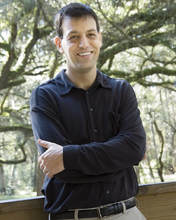 We’re always gratified that composers enter our contest more than once. We hope it is a sign that they have a positive experience. Five composers who were finalists in our inaugural 2014 competition have found success in multiple competitions. Nicole Chamberlain, Joao Pedro Oliveira, and Greg Steinke were all finalists in multiple years. This year, two former finalists joined that club, not only repeating as finalists, but their works won their respective categories! We’ll feature Cherise Leiter and Paul Richards in video interviews soon, as we do with all winners, but we wanted to make sure we featured this year’s winners quickly, so we’ve also invited them to be featured in a Composer Spotlight Interview! Below is Paul Richards’ prior Composer Spotlight. Paul was a finalist in 2014 for his piece for flute alone, Tomorrow in Australia. Tomorrow in Australia is one of our most frequently performed finalist works. FNMC members have played it at the Florida Flute Association Convention, Kentucky Flute Society Flute Festival, and the Mid-Atlantic Flute Association Convention. We’re quite certain that Entanglements for flute and piano, the winning work in this year’s flute and accompaniment category will be very popular with our members and we look forward to sharing information about performances soon! You may have heard Entanglements at this summer’s NFA Convention. Paul’s colleague at the University of Florida, Kristen Smith Stoner, has always been a loyal champion of his works and she performed it at the 2016 NFA Convention. In addition to composing Entanglements since he was last featured, Paul has just completed a new work for Pierrot ensemble entitled Ouroboros. It will be premiered in February 2018! We look forward to hearing it! Repost-Paul Richards Composer Spotlight 5/2017 We’re so lucky that so many of the composers who have been honored in the FNMC Composition Contest have taken the time to participate in the Spotlight Series. allowing our members and followers to learn more about them and their music. Today, we’re excited to share our interview with Paul Richards. The solo flute works have been particularly popular with our members and one of the most performed is Paul Richards’ Tomorrow in Australia. FNMC members have performed Tomorrow in Australia at the Florida Flute Fair, Florida State University, the Kentucky Flute Fair, and the Mid-Atlantic Flute Convention. We were not surprised to learn that Paul is particularly interested in color and timbre as Tomorrow in Australia explores the different ranges of the flute and deftly incorporates extended techniques. Q&A with Paul… Who are your favorite "new music" composers and why? So much incredible music is being made every day, and I'm pulled by so much of it. If asked tomorrow, my answer would surely change. Today: I love Andrew Norman's constant inventiveness and his playful spirit - every piece is a fantastic roller-coaster ride. I love what John Hollenbeck is doing with jazz, particularly his big band work. John Corigliano and Chris Rouse have always loomed large for me, but so do Reich and Andriessen, and Pärt and Gorecki. Lei Liang's writing is dazzling to me, too. There's no shortage! What about new music for flute appeals to you? Color. I'm not a composer who is interested in timbre for its own sake, because I just don't think that way (though I admire composers who do), but compelling timbre is a critical part of my practice. The variety that is possible with a flute makes it a really important instrument for me, as both a featured instrument and a part of larger ensembles. And by color, I don't just mean the so-called extended techniques, but the natural variety that performers bring to a piece, based on range, dynamic indication, and other clues that I put into the score. Describe your musical background and current activities. I come from a musical family. My father is a cantor and composer, and many other members of my family are professional musicians. I started with popular music and gravitated quite early to composition, writing pretty obsessively since my late teens. Recently, I've been deeply involved with the voice, with a large book of songs for soprano and piano, and two full-length operas. I've got a third opera in progress, along with some other large pieces on the horizon. More About Paul… Paul Richards is Research Foundation Professor and Head of Composition at the University of Florida. His works have been heard throughout the United States and internationally on six continents. Awards include Special Distinction in the ASCAP Rudolph Nissim Prize, the Jacksonville Symphony Orchestra’s Fresh Ink composition prize, the New Music for Sligo/IMRO composition prize, and many others. Commissions have come from orchestras, wind ensembles, choirs, and chamber ensembles, and his works have been recorded by Richard Stoltzman, the Slovak Radio Orchestra, the Moravian Philharmonic, and numerous chamber groups. Music by Paul Richards is recorded on the Meyer Media, MMC, Capstone, Mark, Pavane, OAR, and Summit labels, and is published by Carl Fischer Music, TrevCo Music, the International Horn Society Press, Jeanné, Inc., and Margalit Music. If You Liked Tomorrow in Australia… Dem Alef-beys Instrumentation: Flute/Piccolo, Oboe, Clarinet in Bb, Bassoon, Horn in F, Trumpet in C, Trombone, 2 Percussion, Piano, 2 Violins, Viola, Cello, Double Bass Date of Composition: 2008 Duration: 9’ Diversions on a Sacred Tune Instrumentation: Flute, Clarinet, Bassoon Date of Composition: 1995 Duration: 4’30” Entanglements Instrumentation: Flute and Piano Date of Composition: 2016 Duration: 8’ Harbor Music Instrumentation: Flute, Oboe, Clarinet in Bb, Alto Saxophone, Bass Clarinet, Bassoon, Horn, Vibraphone, Marimba, Piano, Violin I, Violin II, Viola, Cello, Double Bass Date of Composition: 2016 Duration: 3’30” Kaleidophone Instrumentation: Flute/Piccolo, Bb Clarinet, Bassoon, 2 Percussion, Piano/Harpsichord, Violin, Viola, 'Cello Date of Composition: 1996 (rev. 2000) Duration: 8’30” Kante le Mesma Kantika Instrumentation: Flute/Piccolo, Oboe/English Horn, Clarinet in Bb, Bassoon, Horn in F, 2 Percussion, Piano, 2 Violins, Viola, Violoncello, Double Bass Date of Composition: 1995 Duration 12’ Songs to Survive the Summer Instrumentation: Tenor and six amplified players (Flute, Violoncello, Electric Guitar, Electric Bass Guitar, Keyboard, Drum Set Date of Composition: 1993 Duration: 35’ Get to Know...Paul Richards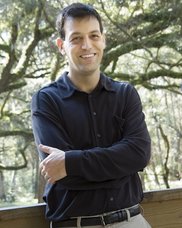 We’re so lucky that so many of the composers who have been honored in the FNMC Composition Contest have taken the time to participate in the Spotlight Series. allowing our members and followers to learn more about them and their music. Today, we’re excited to share our interview with Paul Richards. The solo flute works have been particularly popular with our members and one of the most performed is Paul Richards’ Tomorrow in Australia. FNMC members have performed Tomorrow in Australia at the Florida Flute Fair, Florida State University, the Kentucky Flute Fair, and the Mid-Atlantic Flute Convention. We were not surprised to learn that Paul is particularly interested in color and timbre as Tomorrow in Australia explores the different ranges of the flute and deftly incorporates extended techniques. Q&A with Paul… Who are your favorite "new music" composers and why? So much incredible music is being made every day, and I'm pulled by so much of it. If asked tomorrow, my answer would surely change. Today: I love Andrew Norman's constant inventiveness and his playful spirit - every piece is a fantastic roller-coaster ride. I love what John Hollenbeck is doing with jazz, particularly his big band work. John Corigliano and Chris Rouse have always loomed large for me, but so do Reich and Andriessen, and Pärt and Gorecki. Lei Liang's writing is dazzling to me, too. There's no shortage! What about new music for flute appeals to you? Color. I'm not a composer who is interested in timbre for its own sake, because I just don't think that way (though I admire composers who do), but compelling timbre is a critical part of my practice. The variety that is possible with a flute makes it a really important instrument for me, as both a featured instrument and a part of larger ensembles. And by color, I don't just mean the so-called extended techniques, but the natural variety that performers bring to a piece, based on range, dynamic indication, and other clues that I put into the score. Describe your musical background and current activities. I come from a musical family. My father is a cantor and composer, and many other members of my family are professional musicians. I started with popular music and gravitated quite early to composition, writing pretty obsessively since my late teens. Recently, I've been deeply involved with the voice, with a large book of songs for soprano and piano, and two full-length operas. I've got a third opera in progress, along with some other large pieces on the horizon. More About Paul… Paul Richards is Research Foundation Professor and Head of Composition at the University of Florida. His works have been heard throughout the United States and internationally on six continents. Awards include Special Distinction in the ASCAP Rudolph Nissim Prize, the Jacksonville Symphony Orchestra’s Fresh Ink composition prize, the New Music for Sligo/IMRO composition prize, and many others. Commissions have come from orchestras, wind ensembles, choirs, and chamber ensembles, and his works have been recorded by Richard Stoltzman, the Slovak Radio Orchestra, the Moravian Philharmonic, and numerous chamber groups. Music by Paul Richards is recorded on the Meyer Media, MMC, Capstone, Mark, Pavane, OAR, and Summit labels, and is published by Carl Fischer Music, TrevCo Music, the International Horn Society Press, Jeanné, Inc., and Margalit Music. If You Liked Tomorrow in Australia… Dem Alef-beys Instrumentation: Flute/Piccolo, Oboe, Clarinet in Bb, Bassoon, Horn in F, Trumpet in C, Trombone, 2 Percussion, Piano, 2 Violins, Viola, Cello, Double Bass Date of Composition: 2008 Duration: 9’ Diversions on a Sacred Tune Instrumentation: Flute, Clarinet, Bassoon Date of Composition: 1995 Duration: 4’30” Entanglements Instrumentation: Flute and Piano Date of Composition: 2016 Duration: 8’ Harbor Music Instrumentation: Flute, Oboe, Clarinet in Bb, Alto Saxophone, Bass Clarinet, Bassoon, Horn, Vibraphone, Marimba, Piano, Violin I, Violin II, Viola, Cello, Double Bass Date of Composition: 2016 Duration: 3’30” Kaleidophone Instrumentation: Flute/Piccolo, Bb Clarinet, Bassoon, 2 Percussion, Piano/Harpsichord, Violin, Viola, 'Cello Date of Composition: 1996 (rev. 2000) Duration: 8’30” Kante le Mesma Kantika Instrumentation: Flute/Piccolo, Oboe/English Horn, Clarinet in Bb, Bassoon, Horn in F, 2 Percussion, Piano, 2 Violins, Viola, Violoncello, Double Bass Date of Composition: 1995 Duration 12’ Songs to Survive the Summer Instrumentation: Tenor and six amplified players (Flute, Violoncello, Electric Guitar, Electric Bass Guitar, Keyboard, Drum Set Date of Composition: 1993 Duration: 35’ Get to Know...Emanuela Ballio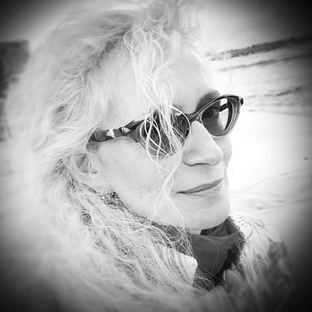 We’ve been working on a fun project to promote the 2017 FNMC Composition Contest which we’ll be sharing very soon and we discovered that we receive a lot of entries from Italy! We knew Italy has long been known for the production and support new music and we were pleasantly surprised to see that Italian composers frequently enter our competition. In fact, Italians are the second most frequent entrants (to the US…and of course in much smaller numbers, but still a fun fact.) This year, Italian composer Emanuela Ballio was a finalist in the flute alone category for Gocce. Although it has been recorded (see below), it has not been performed live. Nicole Riner will present the world premiere during her spring tour at Indiana University of Pennsylvania April 13, 2017. We’re so happy to play a part in bringing her wonderful work to the United States! Q&A with Emanuela Ballio… What about new music for the flute appeals to you? I like the flexibility and the agility of the flute, its colors and its great expressivity, and its abiity to produce several "special effects". Who is/are your favorite “new music” composer/s and why? I don't like any contemporary composer in a special way. I'm interested in all new composers, and I try to listen to new pieces as much as possible. I can find atmospheres, colors, situations, effects that like me, and that can suggest me an idea for a new piece. Describe your musical background and current activities. I’m an Italian composer. I graduated in Composition from “G. Verdi” Conservatory in Milad under Umberto Rotondi’s guidance. Then I was awarded an advance degree in Composition with Franco Donatoni at “Accademia Nazionale di Santa Cecilia” in Rome. I won many international and national composition competitions, my pieces have been performed in concerts worldwide. I get regular commissions not only for usual ensemble, but also for unusual instrument or chamber groups, such as Barberia’s organ, accordion quartet, recorder ensemble, mandolin orchestra, and military band. I teach Composition at “Luca Marenzio” Conservatory of Brescia. More About Emanuela… At the age of 22 she graduated in composition with top marks from “G.Verdi” Conservatory in Milan under the guidance of U.Rotondi. She studied electronic music and film music and was awarded an advanced degree in composition with F.Donatoni at the “Accademia Nazionale di Santa Cecilia” in Rome. She teaches Composition at the Conservatory “Luca Marenzio” of Brescia. Emanuela Ballio’s approach to composing is characterised by an intellectual curiosity and versatility that has led her to write not only for orchestra, choir and solo instruments, but also for unusual chamber groups, such as accordion quartet, recorder ensemble, mandolins orchestra and military band.. She has obtained many honours both in national and international competitions, like “INTERNATIONAL COMPETITION VIOTTI – VALSESIA” (Vercelli 1986), “NATIONAL COMPETITION K.CZERNY” (Torre Pellice 1989),“3° INTERNATIONAL COMPETITION FANNY MENDELSSOHN” (Unna, Germany 1991), “GUIDO D’AREZZO” (Arezzo 1991), “GRAND PRIX DE COMPOSITION DE VILLE D’AVRAY” (Paris 1992), “NATIONAL COMPETITION AGIMUS” (Varenna 1993), “NATIONAL COMPETITION A.BACCHELLI” (Livorno 1993), “GEDOK: 10° INTERNATIONAL COMPOSERS COMPETITION FOR SYMPHONY ORCHESTRA” (Mannheim 1994), “INTERNATIONAL COMPETITION JEWISH CONCEPTS OF ECOLOGY” (Los Angeles 1994), “INTERNATIONAL COMPETITION CONTEMPORANEA NEOPOIESIS “ (Palermo 1994), “NATIONAL COMPETITION CITTA’ DI SCICLI” (Ragusa 1994), “INTERNATIONAL COMPETITION FOR COMPOSERS OF CHAMBER MUSIC” (Winterthur 1996), “PREMIO VALENTINO BUCCHI” (Rome 1997 and 1999), “INTERNATIONAL COMPETITION PAOLO BARSACCHI” (Viareggio 1997), “NATIONAL COMPETITION PREMIO MANDANICI” (Barcellona P.G. 1997), “IBLA GRAND PRIZE 2000” (New York 2000), “MANUEL VALCARCEL” (Santander 2001), “PROGETTO GIOVANI COMPOSITORI” (Milan 2001), “INTERNATIONAL COMPETITION POESIE IN MUSICA” (Cesenatico 2001), “SEPTIMA EDICION DE LOS PREMIOS A LA COMPOSICION Y EXPRESION CORAL” (Canary Islands 2001), “3rd BIBF COMPOSITION COMPETITION” (Great Britain 2003), “3rd INTERNATIONAL COMPOSITION COMPETITION FOR ORGAN OF BARBERIA” (Cesena 2007), “LONGFELLOW CHORUS INTERNATIONAL COMPOSERS’ COMPETITION” (Portland, Maine, USA, 2007), “3 rd LE NOTE RITROVATE Composition Competition” (Avellino 2011), “INTERNATIONAL MUSIC PRIZE tm for Excellence in Composition” (Colorado 2011). Her compositions have been played in concerts and festival all over the world, in important cities like BOSTON, LOS ANGELES, NEW YORK, HARTFORD, BUENOS AIRES, ROSARIO, KIEV, ODESSA, TALLIN, MELBOURNE,TOKYO , MADRID, SANTANDER, LAS PALMAS DE GRAN CANARIA, CORFU’, MALTA, BASEL, PARIS, LONDON, YORK, LEICESTER, MUNICH, HEIDELBERG, KARLSRUHE, BUCHAREST, TIMISOARA, CLUJ-NAPOCA, BELGRADE, MILANO, ROMA, VENEZIA, TRIESTE, PADOVA, BRESCIA, BERGAMO, COMO, NOVARA, ALESSANDRIA, BOLOGNA, LIVORNO, SIENA, PERUGIA, BARI, FORLI’, TERAMO, NAPOLI, AVELLINO. Her works are published by Curci, Edipan, Sconfinarte, Casa Musicale Eco, Wicky, Berben, Fonè, Taukay, MAP, Gavino de Franchy Editores, Centro Musica Contemporanea , Edizioni per Caso sulla Piazzetta, Edizioni Progetti Sonori, MC Harmony, Aliamusica Records, QTR Productons, Acadia Recording. Email: [email protected] If you liked Gocce…
Get to Know...Stephen Lias 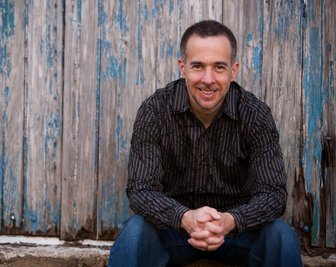 Stephen Lias is a busy man! He has several exciting upcoming performances, just completed a new commission, and teaches full-time at Stephen F. Austin State University. We’re so happy he found time to share some of his thoughts with us! We work hard to just what he suggests; support works and provide opportunities for them to be heard in multiple performances! Many of you may have heard his Sonata for flute and piano, which has achieved considerable popularity. Stephen’s work for solo flute, Flight of Fancy, was a finalist in the 2016 FNMC Composition Contest. Flight of Fancy was commissioned by the Texas Flute Society for the 2014 Myrna W Brown Young Artist Competition. Olivia Boatman will perform Flight of Fancy at the Florida Flute Convention on Saturday January 28th, if you’re attending don’t miss out on the opportunity to hear Stephen’s wonderful work! Q&A with Stephen… What about new music for the flute appeals to you? One of the reasons that it is so fun to write for flute is how the community of flute players embraces and champions new music. In general, instruments with older repertoire and longer histories (like horn or cello), tend to be less embracing of contemporary pieces, while younger instruments (saxophone and percussion) are naturally drawn to newer pieces. Flutists are an exception to this trend. I've attended many flute conferences and am always delighted with the number of world premieres and recent works by living composers. Describe your musical background and current activities. Although I don't consider myself a very old composer, my creative life has already gone through a number of phases. My output has (at various times) focused on chamber music, or theatrical incidental music. For the last eight years, however, I've been focusing on writing pieces inspired by wilderness and the national parks of the United States. This new chapter has let me to serve as Artist-in-Residence at Glacier, Denali, Rocky Mountain, Gates of the Arctic, Glacier Bay, and other national parks, and the resulting pieces (both chamber and symphonic) have been performed all over the world. Do you have any upcoming events that you would like our friends and followers to know about? The most exciting upcoming performance will be in March when the Boulder Philharmonic presents my new piece "All the Songs that Nature Sings" at the Kennedy Center for the Performing Arts as part of the SHIFT Festival of American Orchestras. This work was commissioned with funds from the National Endowment for the Arts' "Imagine Your Parks" program and celebrates Rocky Mountain National Park. There are lots of other performances coming up as well, and they can all be found at: http://www.stephenlias.com What advice can you give to flutists about approaching new music in practice? The biggest request I always have of flute players who perform contemporary music is that they commit to helping the "life of the piece". It is very fashionable to commission and premiere a new piece, but for a new work to get any traction within the flute community, it will need more than a premiere... it will need multiple performances and teachers willing to recommend the piece to their students. The best collaborations between composers and performers come when the performers maintain a commitment to the pieces. More About Stephen… The music of STEPHEN LIAS (b. 1966) is regularly performed in concert and recital throughout the United States and abroad by soloists and ensembles including the Arianna Quartet, the Anchorage Symphony, the Oasis Quartet, the Fairbanks Summer Arts Festival Orchestra, the Ensamble de Trompetas Simón Bolívar, the Boulder Philharmonic, and the Russian String Orchestra. His music is published by ALRY Publications, Brassworks 4, Cimarron Music Press, Alias Press, and Warwick Music, and appears on compact discs from Centaur Records, Teal Creek Music, Mark Records, and Parma Records. His pieces are regularly featured at major national and international conferences including the International Trumpet Guild, the North American Saxophone Alliance, and the ISCM World Music Days. Lias is also active as a composer of theatrical incidental music and served for eleven years as Composer in Residence and Music Director at the Texas Shakespeare Festival. Recently, Stephen has become increasingly focused on being an adventurer-composer. His passion for wilderness and outdoor pursuits has led to a growing series of works about the national parks of the US. He has had residencies at Rocky Mountain, Glacier, Denali, Glacier Bay, Bering Land Bridge, and Gates of the Arctic National Parks, and has written over a dozen park-related pieces that have been premiered at conferences and festivals in such places as Colorado, Texas, Sydney, and Taiwan. Upcoming performances are planned for Fairbanks, New York City, Washington D.C. and New Hampshire. Among his current project is a new commission from the Boulder Philharmonic (funded by the National Endowment for the Arts) to create an original piece inspired by Rocky Mountain National Park. He is the founder and leader of Alaska Geographic's annual "Composing in the Wilderness" field seminar. Stephen Lias received degrees from Messiah College, Stephen F. Austin State University, and Louisiana State University. His teachers have included Dinos Constantinides, Dan Beatty, and Darrell Holt. He is a Distinguished Arts Associate of Sigma Alpha Iota International Music Fraternity and a member of ASCAP, NACUSA, the College Music Society, the Society of Composers, Inc, and the American Composers Forum. He is the Texas delegate to the International Society of Contemporary Music and serves as the Chair of the judging panel for the ISCM-IAMIC Young Composers Award. He currently resides in Nacogdoches, Texas where he is Professor of Composition at Stephen F. Austin State University. If you liked Flight of Fancy… Central Park Suite Instrumentation: woodwind quintet Duration: 12’ Year: 1991 rev. 2001 Forever Alive, Forever Forward Instrumentation: flute, clarinet, violin, cello, piano, and percussion Duration: 6’ Year: 2016 The Ghosts of Mesa Verde Instrumentation: for two flutes (doubling percussion) Duration: 8’ Year: 2013 Glide Instrumentation: woodwind quintet + alto sax Duration: 6’ Year: 2007 Jeffrey Pine Instrumentation: Pierrot ensemble Duration: 6’ Year: 2016 Lechuguilla Instrumentation: flute and clarinet Duration: 5’ Year: 1995 Mélange of Neumes Instrumentation: flute choir Duration: 12’ Year: 2009 Sonata for flute and piano Instrumentation: flute and piano Duration: 20’ Year: 2003 Get to Know...Nicole Chamberlain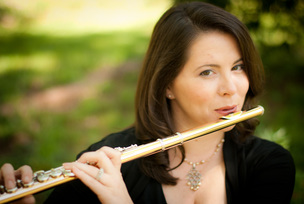 We’ve been very lucky that composers have shown a great interest in our competition and some have entered in multiple years. Several have even been finalists more than once. Among this group is Nicole Chamberlain. She was the runner-up in our inaugural competition in 2014 for her flute quartet, French Quarter. FNMC members have embraced it and performed it at the Florida Flute Fair, Kentucky Flute Fair, and Mid-Atlantic Flute Convention, among others. This year, Nicole’s work Asphyxia was voted an honorable mention in the solo flute category and Three Nine Line and Orion’s Belt were finalists in the flute and accompaniment and chamber music categories respectively. We first interviewed Nicole in 2014 when she was the runner-up and you can watch that interview on our YouTube channel, but we thought you might enjoy an update in this week’s Composer Spotlight. Q&A with Nicole… What about new music for the flute appeals to you? I love how flexible the flute can be. Once type cast as the bird, the flute has become more of a chameleon thanks to the wide use of extended techniques. Need a percussionist? Ok, use some beat boxing. Need a calliope? Multiphonics will do the trick. Wish you had a trombone? Try pitch bends. Want plucking, but no strings players? Flutes can pizz that! Who are your favorite new music composers? I have a long list, and I’ll try to narrow it down to categories. Valerie Coleman for chamber music, John Adams and Osvaldo Golijov for orchestral music, and Carlisle Floyd for opera. I’ve also been shaped by other composer’s approach to music like Jennifer Higdon’s own career journey through self publication, a life changing Joan Tower residency, and a chance encounter with Katherine Hoover about what my next step should be when composing. How can I not include my own composition teacher Dr. William Davis? What all these composers have in common is their unapologetic way of composing and running their own career. They write what they love, and run their careers the way it works for them. Describe your musical background and activities. Post graduate work wasn't for me, which means no job at a university. I've carved out a happy life as a flute teacher to many middle and high schoolers, composing for various ensembles and organizations, and catching gigs where I can. I work every week with Perimeter Flutes, and it’s the only ensemble I am currently active in. I decided this year to make some hard decisions and cut back my performance ensembles and other obligations to focus more on composing. So far, that has been a good decision. I enjoy performing, but I am being more selective. Sometimes I'll take a gig for financial reasons, or I will take it because it’s a rare opportunity. The ultimate goal, however, is to be composing more and get my stuff out beyond my immediate circle. What advice can you give to flutists about approaching new music in practice? As a composer and an active performing flutist, I’ve had experience being on both sides - sometimes both at the same time. My initial gut reaction about tackling a new piece is usually one of being overwhelmed and frustration. The first few practice sessions usually take research, communication with the composer, and patience. Once I get into the piece, I get excited about the piece. It takes time to make new friends, and that’s what a new piece of music is. So my advice is keep an open mind, try new things, and take risks. The great thing about new music is that it gets you out of your comfort zone. It’s all new, and that’s the point, but you only get better when you go beyond what you’ve performed/written before. Do you have any upcoming events you would like our friends and followers to know about? I am preparing a recital of me and my husband’s, Brian Chamberlain, music which will take place on October 29 here in Atlanta at the Eyedrum. It’s the first of a Composer Concert series hosted by Eyedrum. The concert is being called CHAMBERlain MUSIC, since all of the music is for chamber ensemble and composed by the Chamberlains. I will be performing all of the music, and some of the music will be the first time I’ve performed it, like Asphyxia. I will perform some solo works as well as pieces with Perimeter Flutes (we’ll perform French Quarter) and Two Shots Trio (a flute, clarinet, and bassoon trio). You can learn more about that event on my website: nikkinotes.com. More about Nicole… Nicole Chamberlain (b. 1977) is a composer and flutist living in Atlanta, GA. In 2010, Nicole won “Audience Favorite" at the Atlanta Opera's first 24-Hour Opera Project for her opera "Scrub-A-Dub Raw" which resulted in the Atlanta Opera's first ever commission of the children's opera, "Rabbit Tales", which received over 50 performances and kicked started her career as a composer. Nicole has also been commissioned by groups such as the Georgia Symphony Orchestra, Oklahoma Flute Society, Atlanta Flute Club, Flute Choir of Atlanta, Cuatro Puntos, Dahlia Flute Duo, Clibber the Jones Ensemble, and Hopewell Middle School Symphonic Band among others. She has had works performed at the 2013, 2015, and 2016 National Flute Association Conventions. She also won the 2013 Areon Flutes International Composition Competition, 2nd place in the 2014 Flute New Music Consortium Composition Competition, 1st place in the 2015 The Flute View's Composition Competition, and honorable mention in the 2016 Flute New Music Consortium Composition Competition Solo Category. Nicole received her Bachelor’s in Music Composition from University of Georgia where she studied with Dr. William Davis, Dr. Leonard Ball, Dr. Lewis Nielson and Dr. Roger Vogel and was selected for masterclasses with Charles Wuorinen and Joan Tower. Nicole, as a flutist, she has appeared with such groups as Georgia Symphony Orchestra, Gwinnett Ballet Orchestra, duoATL, Mercury Season, Terminus Ensemble, Chamber Cartel, Perimeter Flutes, neoPhonia, Bent Frequency, Capitol City Opera, and Orchestra Atlanta. Nicole has participated in Masterclasses with Bradley Garner, Paul Edmund-Davies and Dr. Gordon Cole. Nicole's former flute teachers have included Donna Orbavich (Hong Kong Symphony), Lisa Wienhold (Alabama Symphony), Dr. Ronald Waln (University of Georgia) and Atlanta Symphony Orchestra's principal flutist, Christina Smith. Currently she balances her time composing, teaching students, performing, and avoiding graphic design work as much as possible. Nicole lives in Doraville with her husband, guitarist and composer Brian Chamberlain. For more information visit her website: www.nikkinotes.com Nicole’s other works for flute… Nicole has 71 works for flute in various instrumentations. Learn more about them on her website: http://nikkinotes.com/CompositionsFlutes.html Get to Know...Amber Beams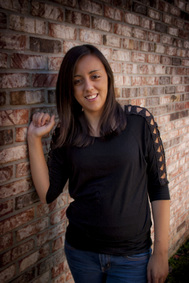 It is always interesting to learn what inspired people to become composers and to write for the flute. Several of our finalists and winners are at least amateur flutists and their understanding of the instrument surely informs their successful composition for the instrument. However, it was not her flute playing that inspired Amber to be a composer, but playing in a handbell ensemble! This week, get to know Amber Beams composer of Calls for solo flute, a finalist work in the solo flute category of the 2016 FNMC Composition Competition. Q&A with Amber… Describe your musical background and current activities. I began composing after joining the handbell ensemble during my undergraduate studies at the University of Indianapolis. After becoming completely memorized by the sounds that this ensemble could produce, I began to explore a darker and more modern approach to the ensemble. In 2012, I completed and premiered my first composition entitled "The Mouse Ran Down the Clock" for handbells and after its success I moved my focus to composition. What are your favorite "new music" pieces and why? Two of my favorite new music pieces would have to be "running the edgE " for two flutes and piano, by Jennifer Higdon and "Their House Was Around Here, Somehwere..." for piano and chamber ensemble by Michael Schelle. Higdon's piece holds a soft spot in my heart after performing it with my flute instructor, Anne Reynolds as part of my senior recital. While Schelle's piece has inspired me to mix different instrumental colors together to create something beautiful that may first appear unusual. What advice can you give to flutists about approaching new music in practice? Don't be afraid and go in with an open mind. Today's composers are always looking for ways to break new barriers and to create new/unusual sounds. Going into practice with an open mind will allow you to better understand what the composer was trying to create. Luckily for us, most composers are just an e-mail away and if you are able to contact them please do! As a composer, I love hearing from my performers and any suggestions they may have to make something easier to play or to understand. More About Amber… Amber Beams (b. 1989) earned a minor in Applied Music from Indiana-University-Purdue-University of Indianapolis in 2010. She earned her bachelor's degree cum laude at the University of Indianapolis where she studied composition with John Berners,electronic composition with Pete Schmutte and flute with Anne Reynolds.Amber recently completed her Masters in Music Composition at Butler University in Indianapolis where she studied with Micahel Schelle and Frank Felice. As a composer, she has received coaching from many respected composers including Carter Pann, William Bolcom, Gabriella Lena Frank, Michael Schelle, Frank Felice, and David Gompper. Amber is also a freelance flutist in the Indianapolis area and plays regularly with the Indianapolis Symphonic Band and serves on their board. www.beamsmusic.weebly.com If you liked Calls…. Pieces of Time, flute and piano (2016) Duration: 8' |
AuthorThe Flute New Music Consortium is an organization dedicated to the creation and support of new music for the flute. Archives
June 2019
Categories
All
|

 RSS Feed
RSS Feed
